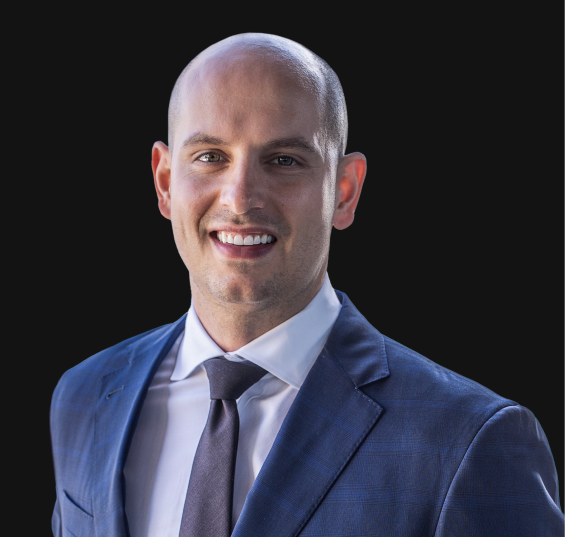Passing on wealth in a tax-efficient way can be especially challenging for high-net-worth families. Between income tax, capital gains, estate tax, and generation-skipping transfer tax, it can seem impossible to leave a legacy for your loved ones without saddling them with a huge tax bill too. Fortunately, there are strategies to streamline your estate plan and give your kids and grandkids a gift that grows tax-free forever. Read on to learn more about how to leave a lasting legacy with Roth IRAs.
Tax Benefits of Roth IRAs
A Roth is an incredible tool to help you limit and manage your tax liability in retirement and beyond. You contribute after-tax funds to the account and then your contributions grow tax-free. As long as you meet certain requirements, all withdrawals will be tax-free in retirement.
The best part about Roth IRAs from an estate-planning perspective is that they do not have an RMD requirement. With most tax-deferred retirement accounts, the owner must begin taking required minimum distributions (RMDs) when they reach age 72, regardless of whether they need the money to live. But this is not the case with Roths.
How Does a Roth IRA Help You Leave a Lasting Legacy?
Essentially, not taking RMDs means you can leave the money in your Roth to grow for your lifetime, even making additional contributions after you retire if you continue to earn an income. You can then use this nest egg as an estate planning tool to provide a tax-efficient inheritance for future generations. If you’re looking for a way to set aside a meaningful legacy for your kids and grandkids, a Roth IRA is a great way to do it.
The funds in the account will pass income-tax-free and as long as you have your beneficiary designations in order, the account will pass outside of probate, which can save significant time and money for your heirs.
Depending on the type of beneficiary you name (spouse or non-spouse), there will be different rules regarding the timing of distributions from the inherited account. In most cases, your beneficiary will have up to 10 years to withdraw funds, giving them that much more time to let the account grow tax-free.
What if I’m Not Eligible?
There’s no doubt that Roth IRAs boast many pros, but one major limitation is that most high-income earners don’t qualify. As of 2023, you’re ineligible to contribute to a Roth IRA if you make more than $153,000 as an individual or $228,000 as a married couple. Thankfully, you aren’t out of luck. Here’s how you can still reap the rewards of a Roth IRA and leave a lasting legacy for your heirs.
Roth Conversions
A Roth IRA conversion is when you move funds from a pre-tax retirement account (401(k), 403(b), traditional IRA, etc.) into a Roth IRA. Because the contributions made to your original account are pre-tax, you will be required to pay taxes on everything coming out of the account before it’s deposited into the new Roth IRA.
With the taxes paid, the conversion can occur. Your funds can now grow tax-free regardless of how high you climb up the tax bracket ladder. The primary goal of a Roth IRA conversion is to lower your tax bill in the future.
Roth conversions can be performed a little bit at a time. That way, you can convert just enough of your account to bring your taxable income for the year to the top of your tax bracket without pushing it into a higher one. A Roth conversion strategy can be used over a span of years to move money from pre-tax retirement accounts to a Roth IRA while limiting your tax liability. In many cases, it is important to have outside funds available to pay income tax on a Roth conversion.
Backdoor Roth
A backdoor Roth IRA is an IRS-sanctioned loophole that lets high-income earners reap the benefits of a Roth without violating the income limits.
Let’s say your income exceeds the legal limit for a Roth IRA, but you still want to fund an account. First, you will need to open a traditional IRA and fund it with non-deductible contributions. Then you will convert your non-deductible IRA to a Roth IRA and repeat this process each year in order to take advantage of tax-free growth.
In this scenario, you can avoid the IRA income limits, but you cannot avoid the annual contribution limits. For 2023, you can fund a maximum of $6,500 (or $7,500 if over the age of 50). This may seem small, but over time you can amass a sizable nest egg that can be passed tax-free to your loved ones.
As with anything tax-related, consult a wealth advisor to position your money in a way that minimizes tax liability and maximizes growth.
Give the Gift of Tax-Free Funds
If you have questions about how you could utilize a Roth IRA to leave a tax-free gift to your kids or grandkids, or if you would like a review of your overall finances, we would love to hear from you! At JGP Wealth Management, we are here to help high-net-worth individuals retire with confidence and leave a lasting legacy they can be proud of. If you’d like to partner with a financial planner who understands your unique needs and inspires you to be more confident in your financial decisions, contact Joe today at 503-446-6450 or [email protected].







